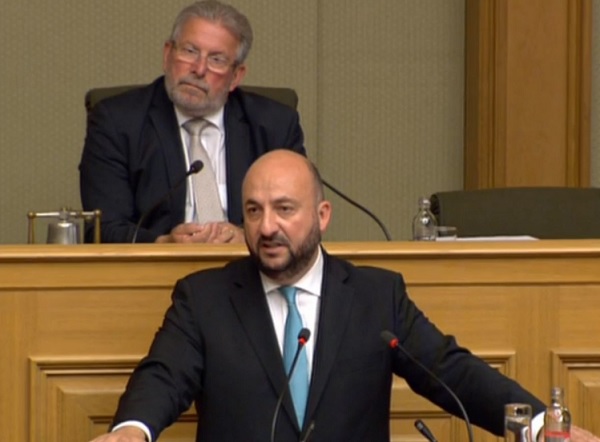 Etienne Schneider welcomes the adoption of the bill on the reform and modernisation of the Grand Ducal Police;
Credit: ChD.lu
Etienne Schneider welcomes the adoption of the bill on the reform and modernisation of the Grand Ducal Police;
Credit: ChD.lu
Yesterday saw the adoption of the bill on the reform of the Grand Ducal Police, in the Chamber of Deputies.
The reform concerns mainly five aspects: the organisation of the general direction of the police, its territorial organisation, the organisation of the judicial police, the legal means of the administrative police and the human resources of the police. The reform was carried out in the form of a participatory process within the police involving all the actors concerned.
The purpose of the reform is to introduce the dedication of the philosophy of community policing as the mission of every police officer. The reform reduces the number of regions from six to four (Capital Region, North Region, South West Region and Central East Region), which corresponds to the judicial districts. This territorial reorganisation aims to increase the availability of the police for the citizen and to ensure an increased presence of patrols on the ground. Thus 13 police stations will work 24 hours a day, whilst other police stations will operate from Monday to Friday from 07:00-21:00, with the possibility of making an appointment.
This reform will also envisage the creation a national judicial police service with three decentralised services allowing a coordinated fight against crime in the Grand Duchy. Chaired by the State Attorney General and composed of the judicial authorities and members of the Police Directorate, a committee to assist judicial police missions has, among other things, the task of setting the general orientation of the work of the police service and of ensuring a uniform implementation of the policy to combat crime at the national level.
The reform also provides the police with a number of means in the area of administrative police to be able to act more effectively against disturbances to public tranquility, safety and health. These measures include, in certain situations, identity checks, searches, the establishment of a security perimeter, temporary closures of establishments, seizures or administrative detention.
In terms of human resources, the reform focuses on better management in terms of recruitment, integration, training and career management. In addition, new careers (A2 and B1) have been created within the police and the substantial efforts made in recent years to recruit police officers will be continued.








